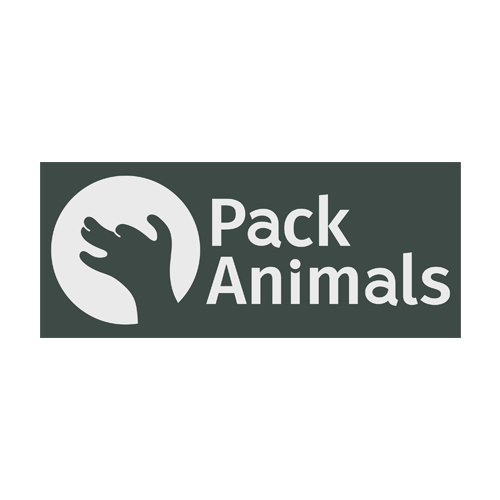OnePack by PetPartners and the Human Animal Bond Research Institute (HABRI) announce survey of HR professionals revealing increasing value of pet-related voluntary benefits
Washington, D.C. (June 10, 2024) — OnePack by PetPartners, a best-in-class pet insurance provider, and the Human Animal Bond Research Institute (HABRI) announced today a survey analyzing the perception of pets and pet-friendly policies in the workplace. Surveying 1,021 HR professionals across the United States and Canada, findings demonstrate pets and pet-inclusive benefits at work have a significant impact for employees, especially relating to mental and physical well-being.
“Nearly every respondent considers pets an important part of the family, and 78% believe pet insurance is an important benefit to offer employees, citing employee wellbeing and morale as key drivers of this voluntary benefit,” said Michelle Yates, EVP of OnePack by PetPartners. “While the connection between pets and the workplace may still be new for some employers, it’s clear there is a strong desire from HR professionals to be inclusive of pet-related voluntary benefits, such as pet insurance, veterinary telehealth, pet bereavement, and more.”
Highlights from the study include:
HR Professionals See the Value of Pet-Friendly Benefits
- The Human-Animal Bond is Strong Among HR Professionals: 95% of HR professionals say they would do whatever they can to ensure their pet lives a healthy life, 94% of HR professionals believe their pet is an important member of the family, and 90% of senior HR leaders say if their pet required extensive veterinary care, they would spend whatever it takes
- Improved Mental Health Benefits and Personal Well-Being from Pets: 96% of respondents reported personally experiencing improved health from owning a pet – either mental, physical, or both. Furthermore, 82% have seen/heard firsthand employee mental health benefits of pet ownership and 81% believe pets can improve employee mental health – this rises to 95% for Gen Z HR professionals.
- Pet-Friendly Culture Matters: 87% of HR professionals believe offering pet insurance is a good way for the company to show care and concern for employees and their families – this rises to 91% for senior leaders specifically.
- Recruitment and Retention Spikes: 82% of HR professionals believe being/becoming pet friendly will help to recruit and retain the best talent – this rises to 85% for Millennial HR professionals.
There is a Clear Need for More Acknowledgement of Pets
Underestimation of Pet Owning Employees: Despite 90% of HR professionals surveyed being pet owners and 72% having pet insurance themselves, respondents estimated only 53% of employees have pets demonstrating a significant underestimation of the interest and need for pet-friendly benefits.
Lack of Pet-Friendly Discussions at Work: While 96% of HR professionals have personally experienced improved health from owning a pet. and discussed the health benefits of pets with friends (65%) and family (58%), they’re less likely to bring those discussions into the workplace with colleagues (45%), their boss/supervisor (21%), or leadership (19%).
The Human-Animal Bond is a Driver for Pet-Friendly Benefits
Awareness of The Human-Animal Bond is High: Among all respondents, 7 in 10 are aware of research on the health benefits of the human-animal bond – and senior HR leaders are more aware than their middle managers.
Awareness of The Human-Animal Bond Drives Interest in Pet-Friendly Benefits: HR professionals who are aware of human-animal bond scientific research are significantly more likely to personally believe in offering pet insurance to employees, representing 85% of those surveyed.
“Companies that acknowledge the human-animal bond by offering pet insurance and related pet-friendly benefits are showing how much they care about employee health and wellbeing,” said Steve Feldman, President of HABRI. “The Human Animal Bond Research Institute is proud to partner with OnePack by PetPartners to show how beneficial it is to have a complete benefits package that cares for our four-legged family members.”
The survey was conducted online by Cohen Research Group (CRG) in conjunction with OnePack by PetPartners and the Human-Animal Bond Research Institute (HABRI) over a two-week period from February 22 to March 7, 2024, to advance the understanding of the human-animal bond with a specific focus on the importance of pet-friendly benefits and policies in the workplace. 1,021 HR professionals working for medium or large companies in the United States and Canada were survey – by design, half of the respondents work at companies currently offering pet health insurance to their employees and half did not offer it to them.
For more information and the full survey findings, please visit onepackplan.petpartners.com/case-study.
About Human Animal Bond Research Institute (HABRI)
HABRI is a not-for-profit organization that funds innovative research projects to scientifically document the health benefits of companion animals; informs the public about human-animal bond research; and advocates for the beneficial role of companion animals in society. For more information, please visit http://www.habri.org.
About OnePack by PetPartners
OnePack by PetPartners provides an employer-based group pet insurance offering, covering both cats and dogs, with options for accident or accident and illness coverage. Policies are administered by PetPartners, Inc. and underwritten by Independence American Insurance Company. For complete details, visit https://www.petpartners.com/sample-policies.
Contact
###





